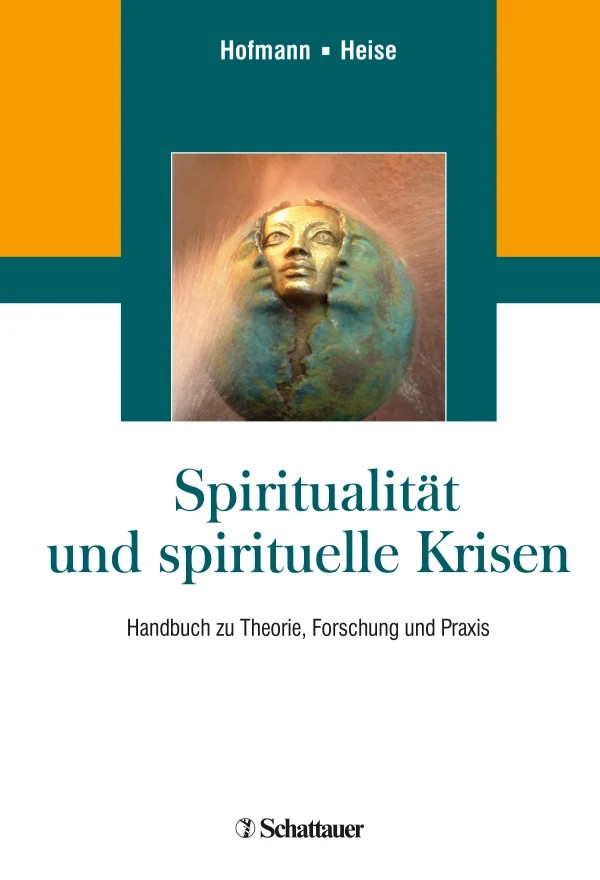Against the background of the steadily growing interest of the general population in spiritual guidance and practices, the aim of this publication project was to produce a comprehensive, scientifically based reference work on all questions relating to the possible problems and crises that can arise in the context of spiritual development, orientation and practice.
Spirituality and Health
Book Project "Spirituality and Spiritual Crises. Handbook on Theory, Research and Practice"
The Handbook Spirituality and Spiritual Crises addresses the following key questions
- How did the topic of “crises of spiritual development” and the concept of “spiritual crisis” develop in the history of psychology? Which actors were involved and what were their positions and motives?
- What is the current social and health science relevance of the topic?
- What manifestations of clinically relevant problems and crisis-like processes of spiritual development are there?
- How can such clinically relevant problems be classified in terms of diagnosis and differential diagnosis?
- Which individual and contextual factors predispose to problematic processes in the context of spiritual development and practice, and which protective factors can be derived from this?
- What theoretical models and scientific-empirical findings are available on the subject?
- What general procedures are indicated for supporting people with such problems and what specific clinical treatment concepts have been developed for this?
- What institutional and other resources are available for understanding and dealing with spiritual crises (clinics, counseling centers, networks, online resources)?
- How is the topic of the spiritual crisis reflected in the context of society as a whole?
Project Management
Details & Structure of the Manual
- Editors: Liane Hofmann & Patrizia Heise
- 528 pages, 33 chapters, 7 sections
- 31 authors from different disciplines and fields of application
- Publisher: Schattauer / Klett– Cotta
- Language: German
- Financially supported by the IGPP
Table of Contents
Target Groups
The volume is aimed in particular at the following target groups:
- Practitioners of psycho-social care and health professions who accompany clients in spiritual crises, work with spiritually/religiously oriented clients, want to include the spiritual dimension in their work with clients (psychotherapists, clinical psychologists, psychiatrists, counselors, pastoral workers …).
- Providers of holistic approaches to psychotherapy, psycho-spiritual methods or bio-energetic procedures: e.g. yoga teachers, meditation instructors, body therapists, people who work with psycho-spiritual methods;
- People with a scientific interest in the topic, scientists researching spirituality and spiritual development;
- Relatives and lay people who accompany people in spiritual crises;
- Interested lay people, people with a spiritual orientation, affected persons.
Specifics of the Volume
- Aims to provide a comprehensive treatment of the topic of spiritual development and its crises;
- Systematic processing of the entire spectrum of relevant issues;
- Covers a wide range of topics, from the development of theories and scientific findings to practical application and social perspectives;
- Overview of relevant theoretical models, empirical findings and treatment approaches on the topic of spiritual development and its crises.
- The first handbook and multi-author work on the subject in the German-speaking world;
- In order to take into account the specific religious-cultural, social and health policy framework conditions, for the first time experts from German-speaking countries are represented, as well as international authors;
- Up to date, scientifically sound and oriented;
- Thematizes experience-based, trans-denominational spirituality; spirituality in the sense of consciousness development (versus focus on Christian religiosity, faith-oriented, traditional religiosity, religion-psychological approach)
- Different perspectives are taken into account: different theoretical perspectives, specialist areas and social groups that usually operate separately are represented; aims to do justice to the complexity of the topic and to create synergy effects;
- For the first time, a broad spectrum of tried-and-tested and established approaches to support and treatment in this area is presented in detail.
- Proceeds from a standpoint of paradigmatic openness, methodological pluralism and ontological agnosticism
Public Relations
Video podcast: https://www.youtube.com/watch?v=7mGUC0WuAWM&feature=youtu.be
Interview Radio Evolve (April 2017): https://www.evolve-world.org/de/podcast/spirituelle-krisen
